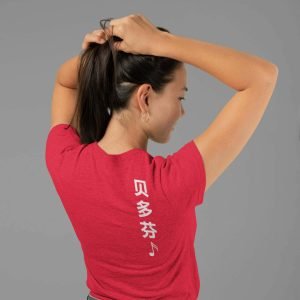What does ‘Must say until like that meh’ really mean—and why do Singaporeans keep saying it?
It’s not just words; it’s a cultural clapback. When someone says something a bit too extra, too dramatic, or just plain unnecessary, you throw out, “Must say until like that meh?”—a sort of lovingly passive-aggressive vibe check. This quintessential Singlish phrase combines sass, disbelief, and social policing, wrapped up in authentic Singaporean culture that defines our daily interactions.
-
Grunge, hokkien, Romper, singlish, Typography
$25.00 Select options This product has multiple variants. The options may be chosen on the product page
TL;DR: Cracking ‘Must say until like that meh’ in a Nutshell
- ‘Must say until like that meh’ expresses gentle disbelief, typically aimed at someone being overly harsh or dramatic.
- It’s a hallmark of Singaporean slang, embedded in our daily interactions, from kopi shops to group chats.
- Loaded with Singlish charm, it acts as both a social filter and cultural bonding tool.
- Understanding it means understanding the Singaporean culture of restraint, indirectness and, yes, passive aggression.
- This article breaks down the origins, evolution, practical usage, and why saying it still feels so good.
Understanding Singlish as a Cultural Phenomenon
First things first—Singlish is not broken English. That narrative is so old liao. It’s an organic language, born from the mix of English, Malay, Hokkien, Cantonese, Tamil and more. This unique Singaporean slang formed from the pressure cooker of Singapore’s multicultural, shockingly multilingual society. You don’t just “speak” Singlish; you participate in it.
And here’s the thing: Singlish phrases aren’t just a series of strange noises and mouth sounds—we use them to signal relatability, set boundaries, and even throw shade. Speaking Singlish well is like knowing when to tap your card versus pulling out coins at the MRT gantry. Master it, and your social life unlocks another level in Singaporean culture.
Significance of the Phrase ‘Must say until like that meh’
So… why Singaporeans say ‘Must say until like that meh’
This iconic Singlish phrase is a verbal raised eyebrow that perfectly captures our communication style. You use it when someone is describing a situation too intensely, throwing shade, or when things just feel a tad overcooked in your daily interactions.
-
Chinese, KaoBeiKing, Singlish/Hokkien, T-shirts, Typography, Women
Price range: $30.00 through $38.00 Select options This product has multiple variants. The options may be chosen on the product page -
Chinese, Chinese New Year, Ladies, Mens, T-shirts
Price range: $35.00 through $43.00 Select options This product has multiple variants. The options may be chosen on the product page
Scenario: Friend says, “Eh your new haircut ah… very retro hor, like NS days.”
You: “Must say until like that meh?”
It softens the jab, pokes fun at the drama, and enforces an unspoken social norm—don’t sabo too hard lah. This Singaporean slang serves as our conversational moderating tool—and Gen Zs use it like linguistic seasoning: always just enough to flavour, never too much to punch.
In short, this phrase embodies clever restraint in full flourish. You’re not insulting back, but you’re also not rolling over. It’s a beautifully Singaporean form of pushback without war.
Origins and Evolution of Singlish
Back in the day, Singapore’s linguistic landscape was a glorious mashup. Picture this: hawker centres packed with uncles yelling orders in Hokkien, Tamil aunties chatting in the void deck, Chinese kids swearing in dialects their parents pretend not to know. English became the lingua franca for school and business, but around that formed a street-smart hybrid—our beloved Singlish phrases.
“Must say until like that meh” likely evolved from Chinese syntax mingling with Malay idiomatic rhythm and English vocabulary. The phrase loosely mirrors structure you’ll find in colloquial Mandarin—”要讲到这样 meh?” There’s that delicious end-particle “meh”, indicating doubt or questioning, which is pure Singlish gold and proudly untranslatable.
Today, this phrase finds its way into memes, casual rows, and even job interviews where someone’s reviewing your portfolio with too much “constructive” criticism. (Alamak.) Singaporean slang has gone from being frowned upon to fiercely defended—and rightly so.
Practical Examples of Using Singlish in Daily Interactions
How to master Singlish slang effortlessly
Let’s break it down into archetypes so you’ll know exactly when to pull ‘Must say until like that meh’ out of your conversational pocket during daily interactions.
- The Brutally Honest Auntie: You post a happy pic, and her comment is “Wah you gain weight leh.” Cue Singlish saviour: “Must say until like that meh?”
- Office Gossiper: Talks loudly about colleague’s “toxic vibes.” You look up from your laptop and sigh—”Must say until like that meh?”
- Your Mum: Complains you only call her when you need something. You, defensive but loving: “Must say until like that meh?”
You don’t just use this Singlish phrase to defend yourself. Sometimes it’s said for the drama itself, delivered with a hearty laugh and that classic Singaporean facial expression—eyebrows raised, mouth in fake shock. This perfectly embodies how Singaporean culture embraces both directness and playfulness.
-
$25.00 Select options This product has multiple variants. The options may be chosen on the product page
-
Chinese, Chinese New Year, Ladies, Mens, T-shirts
Price range: $30.00 through $38.00 Select options This product has multiple variants. The options may be chosen on the product page
Embracing and Celebrating Singaporean Slang
The impact of Singlish on Singaporean communication
When it comes down to it, Singlish phrases aren’t just speech. They’re social electricity that defines Singaporean culture. You feel instantly closer to someone who can volley a quick “Can one lah!” with the same energy you serve. Even more so when a line like “Must say until like that meh” lands perfectly in roast-heavy banter during daily interactions.
Using Singlish slang responsibly (sounds like an ad campaign but bear with me) lets you tap into the rhythm of a nation. It grounds you to your roots, jokes, references—you name it.
By recognising phrases like “Must say until like that meh,” we embrace Singapore’s unique communication identity, one bewildered angmoh at a time. So next time someone tries to ‘feedback’ too hard on your makan choices or Netflix preferences, now you know what to say—and how to say it with soul.
Frequently Asked Questions
Is ‘Must say until like that meh’ rude?
Not exactly. It’s more of a playful expression of disbelief or gentle critique. Tone matters a lot!
Can I use Singlish at work?
Depends on your workplace culture. Among local colleagues, yes; but maybe not in a boardroom with HQ from overseas.
What does the ‘meh’ mean in Singlish?
‘Meh’ is a sentence-ending particle to express doubt, surprise or contradiction. It’s informal but powerful.
Why do Singaporeans mix languages in one sentence?
It reflects our multicultural society and efficient communication instincts—why use three sentences when la, lor, leh can do?
Is Singlish declining among younger Singaporeans?
Despite formal discouragement, Singlish remains popular especially on social media, memes, TikTok and casual convos.
How do you learn Singlish?
Observe, mimic, and get roasted. It’s all part of the charm. Just hang out more with locals and dive into shows, kopitiam convos and Reddit threads.
Is Singlish harmful to standard English?
Not if you code-switch. Most Singaporeans can toggle fluently between Standard English and Singlish depending on context.







